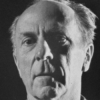Edward Weston

Edward Weston
Edward Henry Westonwas a 20th-century American photographer. He has been called "one of the most innovative and influential American photographers…" and "one of the masters of 20th century photography." Over the course of his 40-year career Weston photographed an increasingly expansive set of subjects, including landscapes, still lifes, nudes, portraits, genre scenes and even whimsical parodies. It is said that he developed a "quintessentially American, and specially Californian, approach to modern photography" because of his focus on the people and...
NationalityAmerican
ProfessionPhotographer
Date of Birth24 March 1888
CityHighland Park, IL
CountryUnited States of America